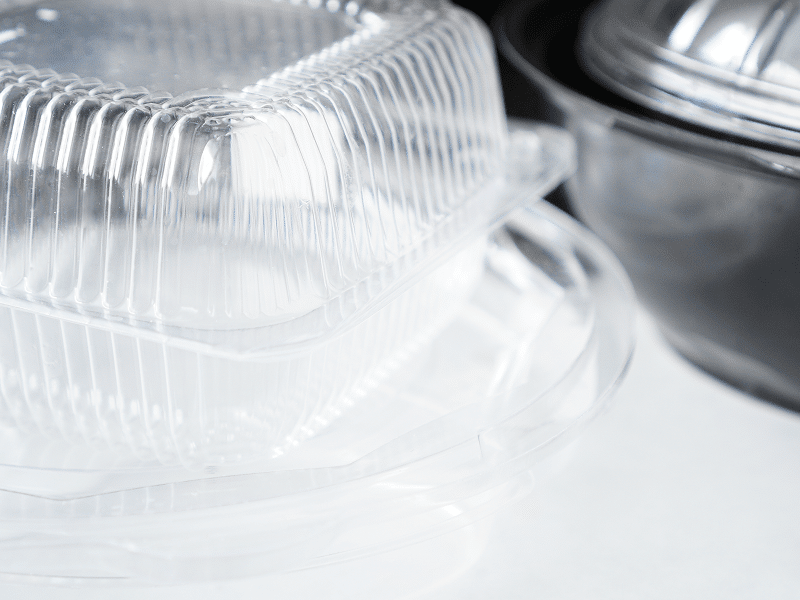En July 25, 2025, el Autoridad Europea de Seguridad Alimentaria (AESA) published a scientific opinion affirming the safety of the EREMA VACUNITE recycling process (EU register number RECYC332). The assessment, conducted under Articles 17 and 18 of Commission Regulation (EU) 2022/1616, evaluated whether recycled polyethylene terephthalate (PET) from this process can be safely used in food contact materials.
Summary of the Update
EFSA concluded that the EREMA VACUNITE process (an advanced mechanical recycling system) meets the necessary decontamination efficiency standards required for food safety. This conclusion provides regulatory clarity for businesses seeking to use recycled PET in applications such as drinking water bottles y thermoformed trays intended for long-term storage at room temperature or below.
Process and Safety Evaluation
The process uses a combination of EREMA Vacurema Basic y Polymetrix SSP V-LeaN technologies to convert post-consumer PET containers into recycled PET pellets. The input must consist of washed and dried flakes, with no more than 5% de non-food applications.
EFSA identified two critical decontamination steps in the process:
- Flake reactor processing (Step 2)
- Solid-state polycondensation (SSP; Step 5)
Both steps are controlled by specific parameters including temperature, pressure, residence time, y nitrogen flow to ensure contaminant removal.
Challenge tests confirmed decontamination efficiencies between 95.7% and 99.6%, and modelled migration levels into food were conservatively calculated to be ≤0.0962 μg/kg, which is below risk thresholds for human health.
Conditions and Limitations
The recycled PET may be used at up to 100% concentration in food contact materials but is not suitable for microwave or conventional oven use.
Operators must ensure that:
- Input PET complies with EU food contact legislation
- El ≤5% threshold for non-food origin PET is not exceeded
- Periodic verification and documentation of input and output quality is maintained
Feedback Deadline
No public comment or feedback deadline is applicable for this EFSA opinion, as the update confirms final approval.
Why It Matters
This EFSA opinion enhances regulatory certainty for recycling operators and food packaging manufacturers by confirming that the EREMA VACUNITE process complies with EU safety standards. The evaluation supports broader circular economy goals, aligns with digital traceability efforts, and ensures minimal consumer risk from the use of recycled PET in food applications.
Who Is This Relevant For?
This update is important for QA and Regulatory teams in the food packaging, plastic recycling, y sustainability sectors, as well as compliance managers overseeing input material sourcing, documentation, and traceability systems.
Próximos pasos
Stakeholders intending to adopt the EREMA VACUNITE process should:
- Fully comply with the validated input and process parameters
- Regularly audit input sourcing to ensure ≤5% non-food PET
- Maintain clear records of decontamination efficiency, material flow, y traceability
- Prepare for future regulatory audits or inspections by aligning internal controls with EU requirements
In this context, RegASK is an AI-driven platform that helps regulatory teams monitor compliance, streamline documentation, and stay ahead of regulatory updates globally.
Preguntas frecuentes
What is the EREMA VACUNITE process used for?
It is a recycling process used to produce food-grade recycled PET from post-consumer PET containers.
What are the critical control steps in the EREMA VACUNITE process?
Flake reactor processing and solid-state polycondensation are the key decontamination steps controlled by parameters like temperature and residence time.
Is recycled PET from this process safe for all food applications?
It is approved for use at up to 100% in materials for long-term storage at room temperature or below, but not for microwave or oven applications.
Suscríbete a las últimas novedades regulatorias
Boletines informativos seleccionados
Información relevante de la industria
Acceda a información de expertos

